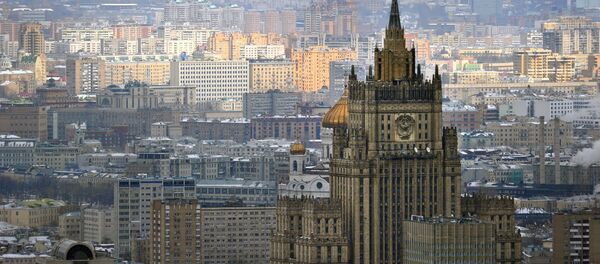One of those executed was Nimr al-Nimra, a dissident Saudi Shiite cleric. His death has led to mass protests in Saudi Arabia, Iran and other countries in the region including Bahrain, Pakistan, India and Turkey. On January 3, Riyadh announced it is cutting diplomatic ties with Iran after its embassy in Tehran was attacked by protesters.
According to data from Bloomberg, since Thursday, December 31, the price of Brent crude futures has risen by 2.5 percent, from $37.28 per barrel to $38.21 per barrel on January 4. Bloomberg noted that the increase of the global market prices is steeper than that of the US benchmark WTI, the value of which increased after the US Congress voted in October to lift its 40-year ban on exporting oil.
The price rise comes despite fears of an oil glut resulting from increasing US stockpiles, the prospect of US exports, and the decision of OPEC, led by Saudi Arabia, not to lower its production ceiling. Saudi Arabia is the biggest oil exporter in the Organization of Petroleum Exporting Countries (OPEC), and Iran is the fifth largest.
DWN concludes that Saudi Arabia’s decision to execute al-Nimra was taken in full knowledge that Tehran would react furiously, and that Riyadh seeks to stir conflict in Iran between hardliners and moderates.
GEOPOLITIK – Ölpreis steigt nach Eskalation zwischen Saudi-Arabien und dem Iran https://t.co/eTyN7CeUhd pic.twitter.com/zVvfjRS2CE
— Peter Frühwald (@Fruehwald) January 4, 2016
'The oil price rises after escalation between Saudi Arabia and Iran,' wrote DWN.
“The background to the escalation could be the attempt by the Saudis to keep the oil price high: the regional conflict between Sunnis and Shias could lead to new bloody wars in the region. If the situation in the Middle East is particularly fraught with conflict, as a rule the oil price rises. According to IMF estimates, Saudi Arabia is threatened by bankruptcy. The Saudis will do everything to force up the oil price,” wrote DWN.
“The weakest link in this chain is the EU: it can neither get involved militarily in the Middle East, nor can it actively influence the oil price. Although the bearings are also felt in Europe. Permanently rising oil prices would be poison for the ongoing Euro crisis.”




